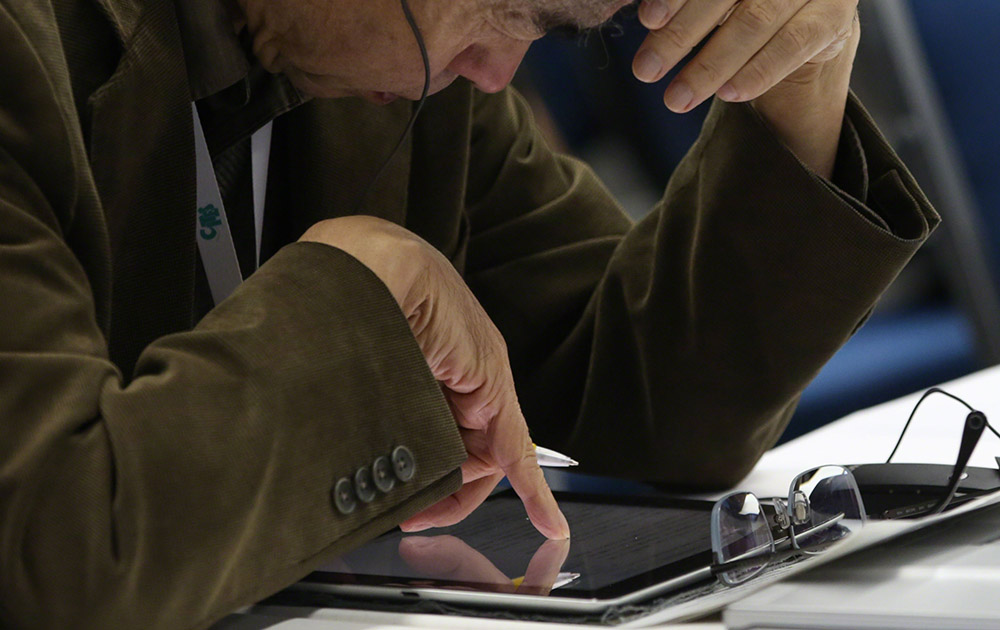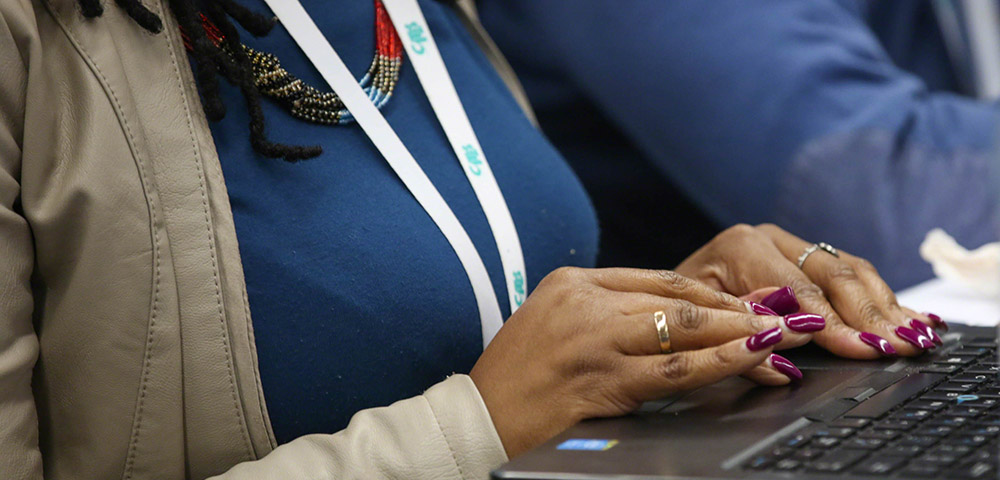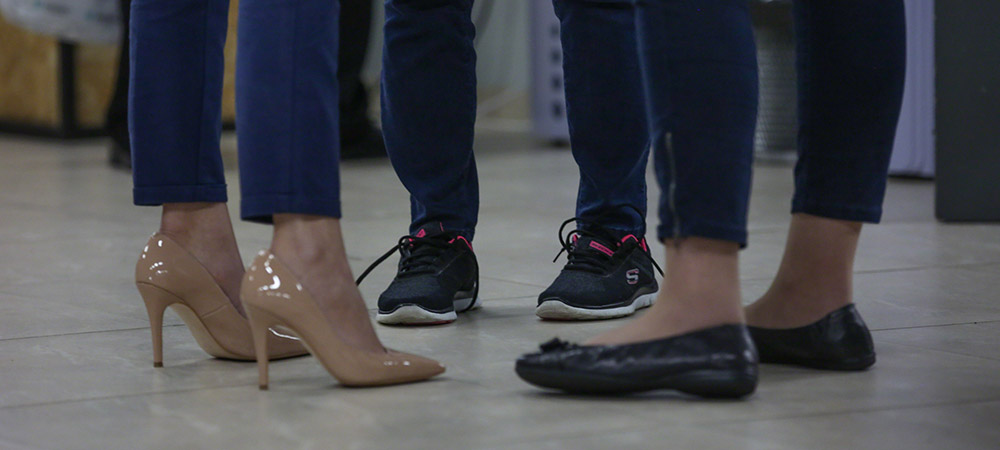Summary Highlights: 1 - 5 October 2018
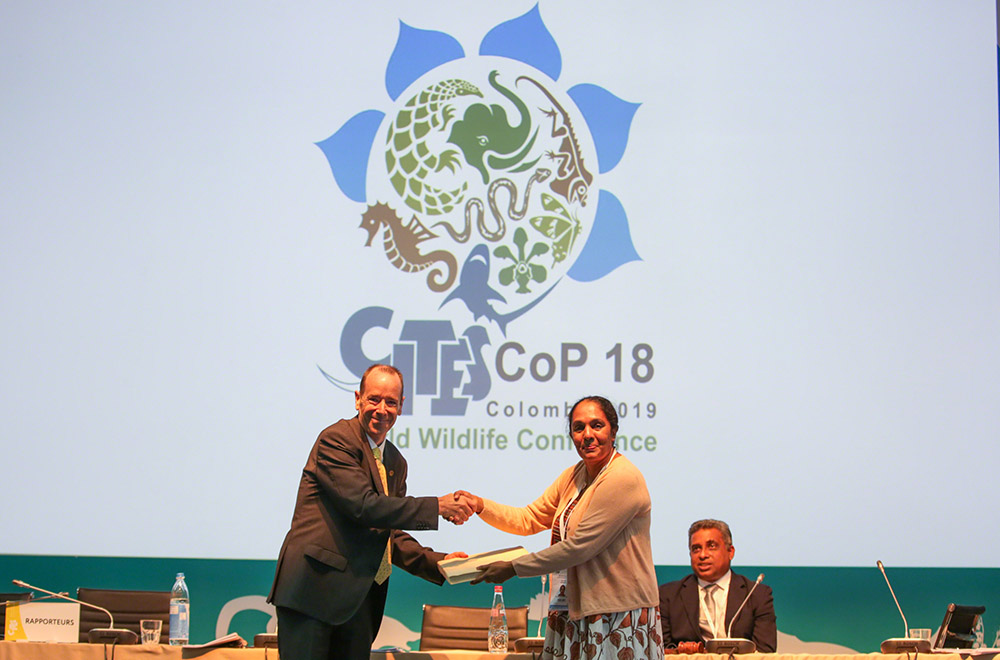
David Morgan, CITES Secretariat, and Sevvandi Jayakody, Sri Lanka, officially unveil the CITES CoP18 logo
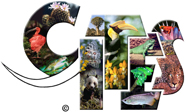 Participants to the 70th meeting of the Standing Committee (SC) of the Convention on International Trade in Endangered Species of Wild Fauna and Flora (CITES) met for the final day of deliberations.
Participants to the 70th meeting of the Standing Committee (SC) of the Convention on International Trade in Endangered Species of Wild Fauna and Flora (CITES) met for the final day of deliberations.
SC Chair Carolina Caceres shepherded delegates through the remaining agenda items and reports of working groups.
Highlights include the SC decisions:
- On Eels (Anguilla spp.), to encourage range states along with aquaculture, transit and consumer parties to build on the successes of existing enforcement efforts through cross-border as well as cross-agency collaboration and sharing of intelligence;
- On disposal of confiscated specimens, to forward to the 18th Conference of the Parties (CoP18) draft decisions calling, inter alia, on the Secretariat to collect information on existing networks and resources on the management of seized and confiscated live animals and make it available to parties;
- On Application of Article XIII in Nigeria, to agree that parties shall suspend commercial trade in specimens of the species Kosso Wood (P. erinaceus) from Nigeria until the party makes scientifically based non-detriment findings for trade in the species in the country to the satisfaction of the Secretariat and the Plants Committee Chair; and
- On engagement of rural communities, to note the report of the working group in particular the lack of consensus on the recommendations, asking CoP18 whether to extend the mandate of the working group on how to engage rural communities in CITES processes and report to CoP19.
Parties and observers gave thanks to Chair Caceres and the Secretariat for managing such a large agenda.
SC Chair Caceres concurred that it was one of the most difficult meetings to chair with a daunting agenda but gave much thanks to all participants for their flexibility and cooperation.
She thanked the Secretariat, noting each person "does the work of five." The SC concluded with a look towards the next challenge ahead: CoP18 in Sri Lanka in 2019.
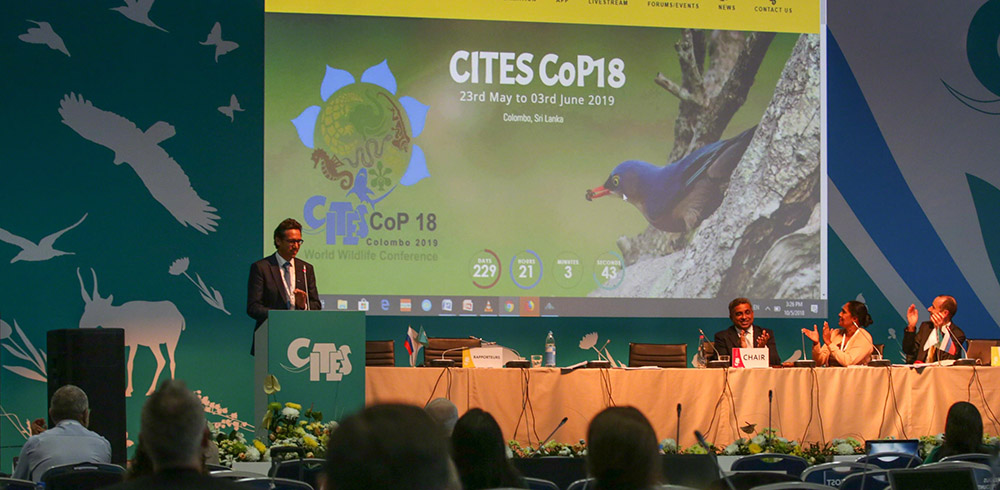
The CITES CoP18 website is officially launched
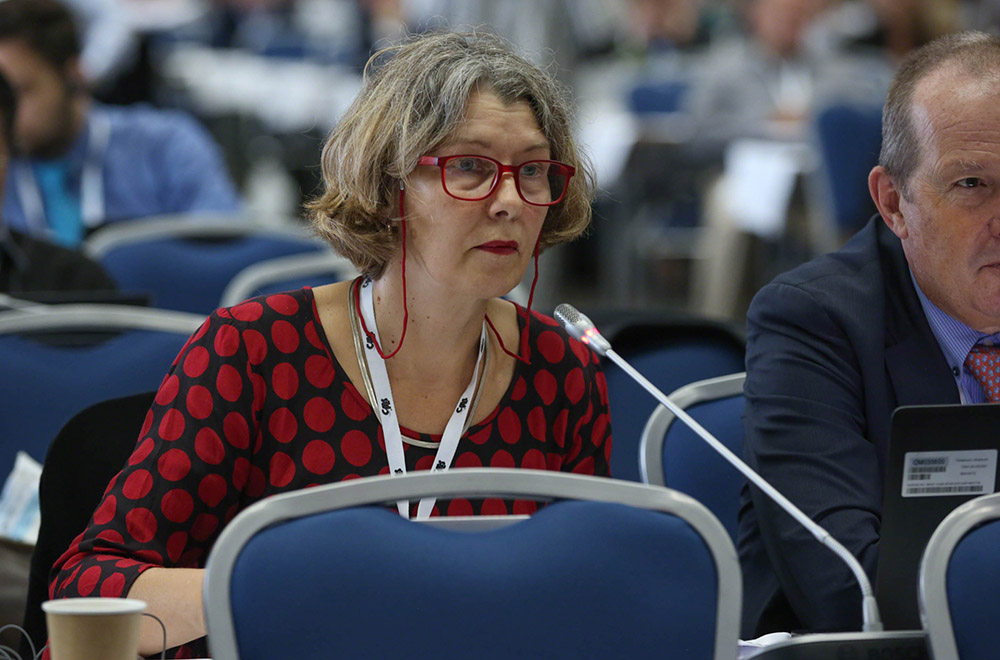
Ursula Moser, Switzerland
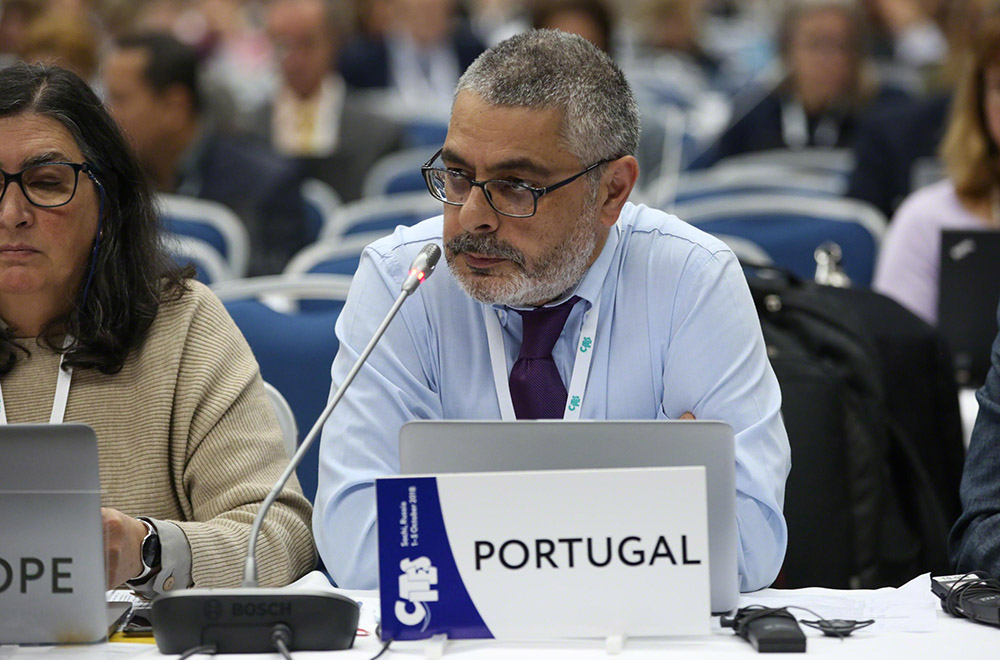
João Loureiro, Portugal
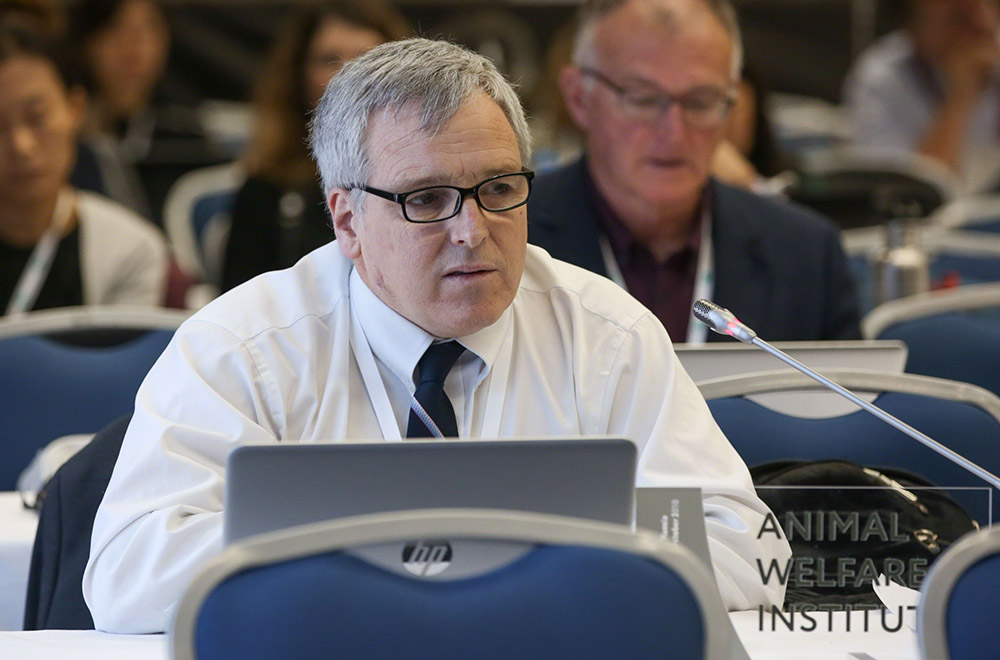
Donald John Schubert, Animal Welfare Institute
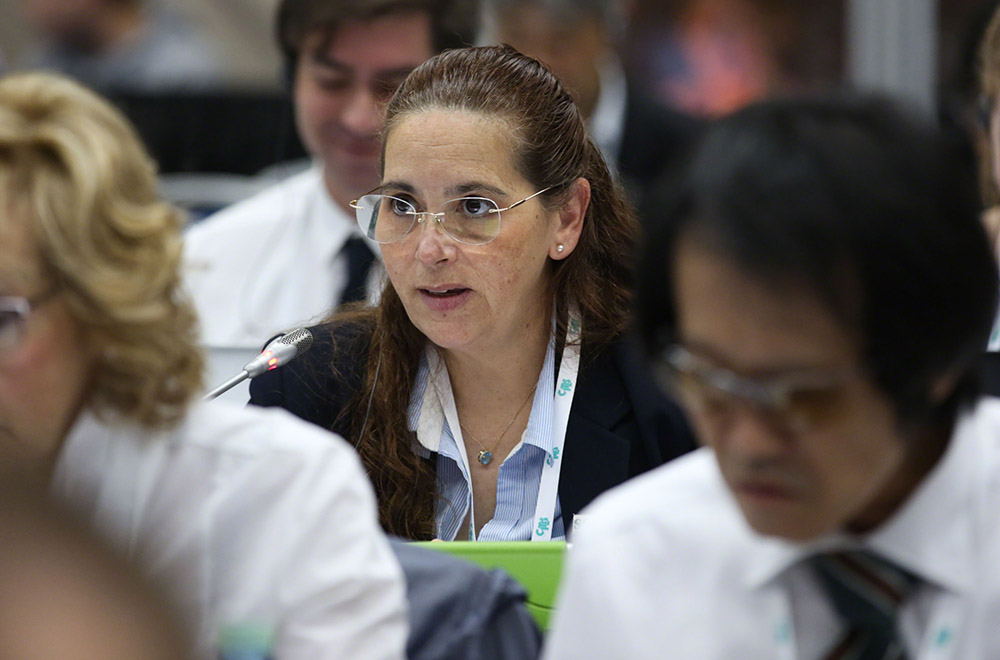
María Elena Sánchez Saldaña, Species Survival Network (SSN)
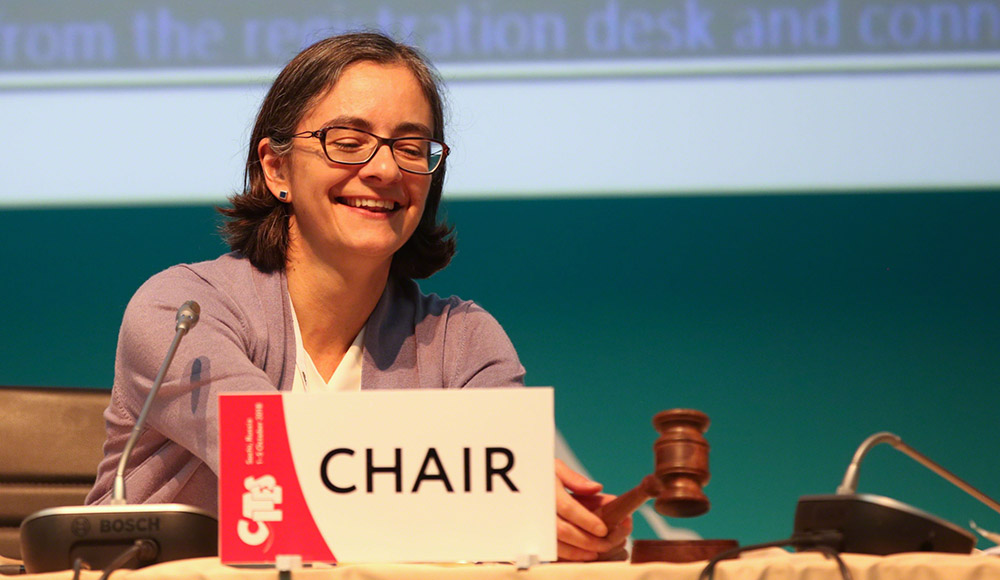
The meeting is gavelled to a close

Representatives of various NGOs meet informally on the second to last day of SC70
Participants to the 70th meeting of the Standing Committee (SC) of the Convention on International Trade in Endangered Species of Wild Fauna and Flora (CITES) reconvened for a fourth long day of discussions.
In the morning, the CITES Secretariat welcomed progress made by several countries in harmonizing national legislation with the Convention. She noted that Angola, Benin, Côte d’Ivoire, Mauritania, Myanmar, Pakistan, and Uzbekistan have reported progress on legislation under the National Legislation Project review. She also highlighted that Mongolia, Botswana, and Kazakhstan, originally in the list of countries that have not reported any legislative progress, have taken steps to remedy the situation. Uzbekistan welcomed the support of the Secretariat and noted that the new legislation will be ready by the end of 2018. Two countries, Ecuador and Comoros, have not shown progress on legislation and the Secretariat stated there will be a suspension in commercial trade after 60 days.
The Secretariat also noted that several countries have failed to submit national reports for consecutive years and could be subject to commercial trade suspensions if the submission deadline of Oct. 31, 2018 is not met.
On trade in live elephants, the SC requested the Secretariat to consult with parties whose elephants are listed in Appendix II and have exported live elephants to non-elephant range states and to seek information on how importing states made their determination on suitable housing and care.
The SC also discussed:
- enforcement issues;
- illegal trade in cheetah;
- sturgeons and paddlefish;
- humphead wrasse; and
- sharks and rays.
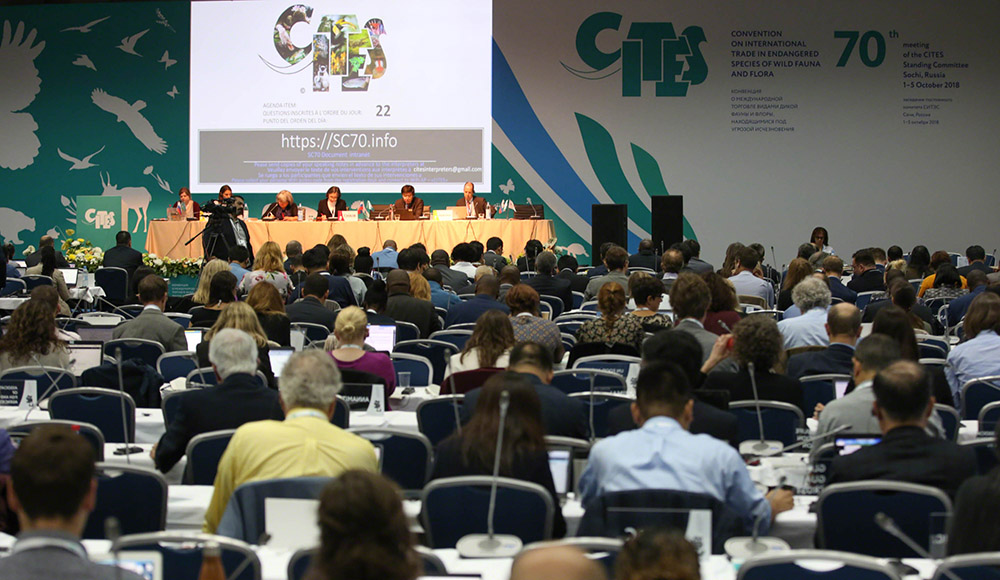
Delegates in plenary during the morning session
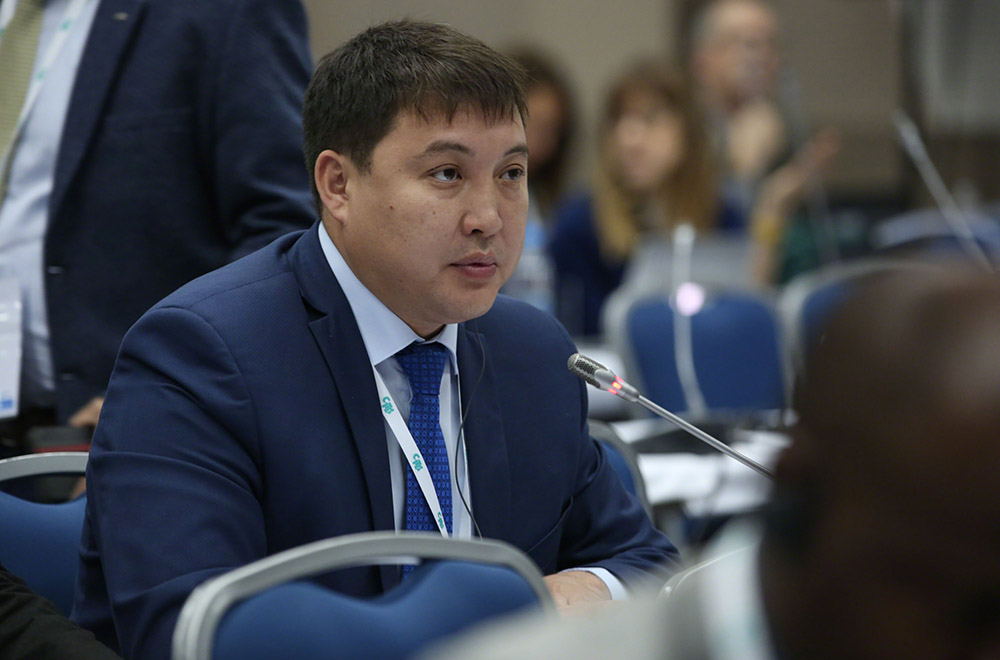
Nariman Zhunussov, Kazakhstan
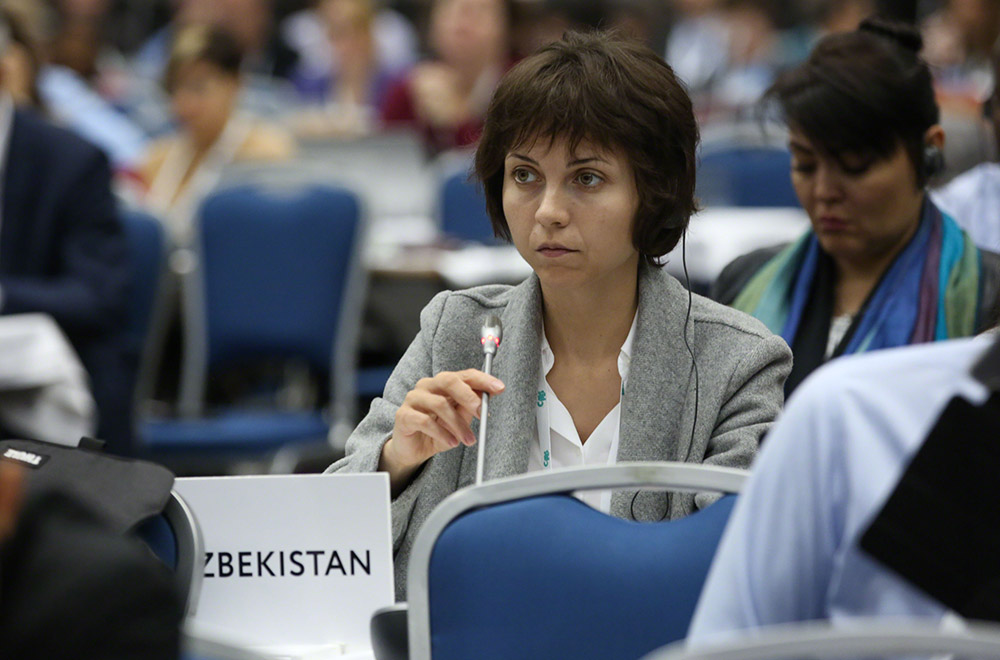
Elena Abdullaeva, Uzbekistan
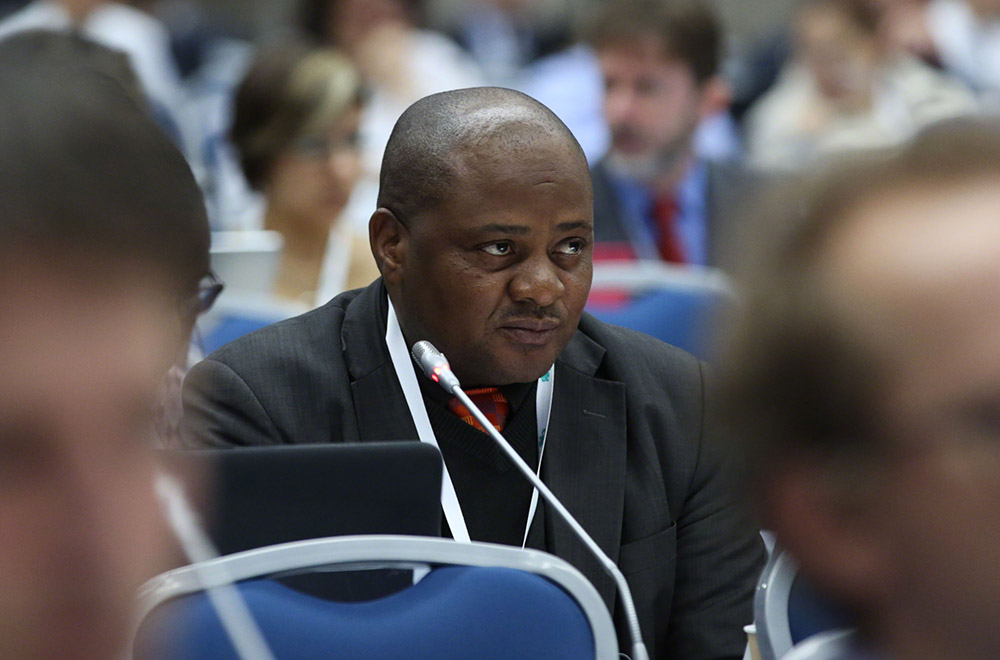
Felix Monggae, Botswana
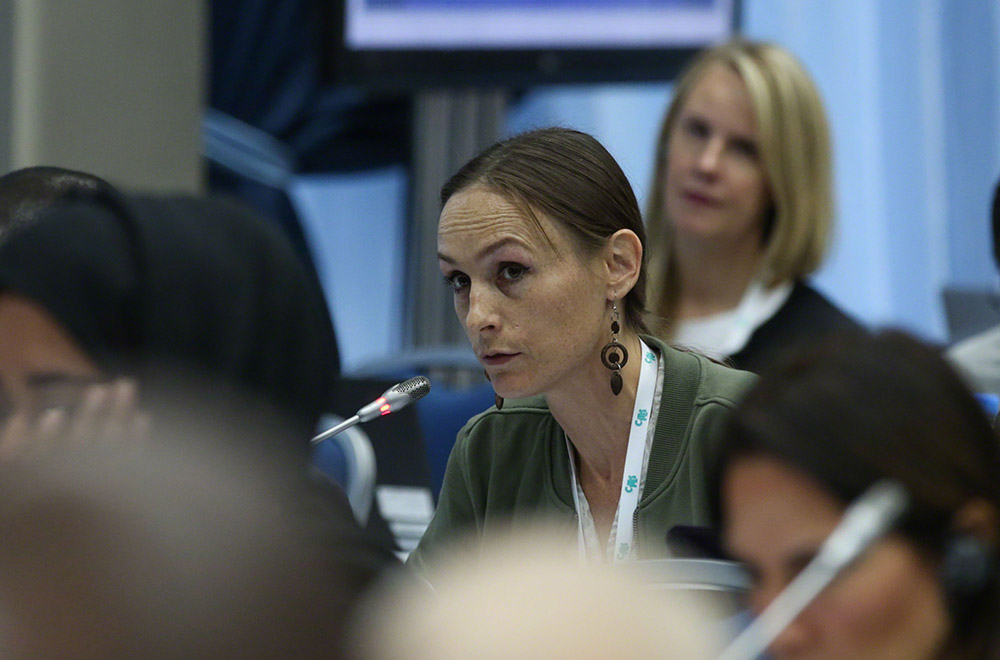
Tatsiana Zhaliaznova, Belarus
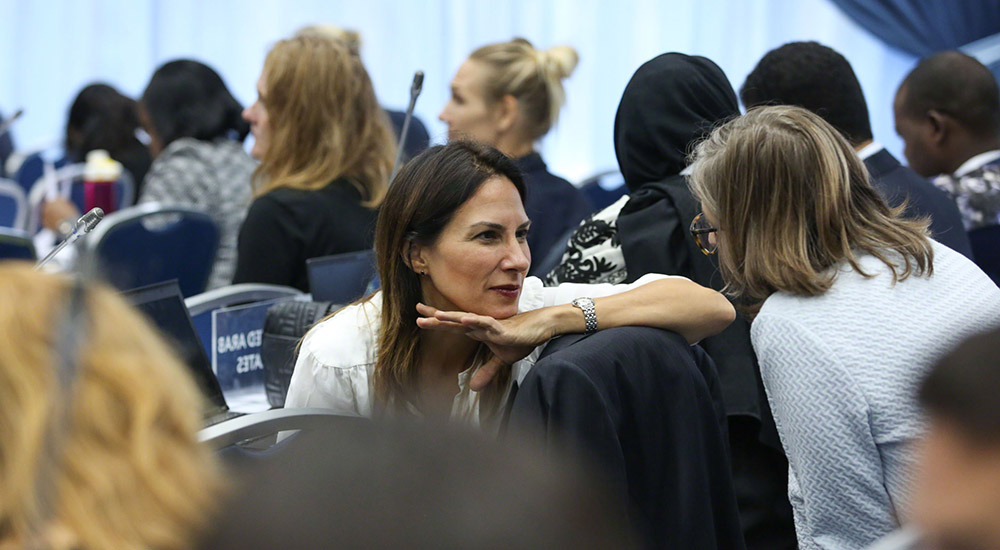
Delegates speak informally

A display showcasing Russia's biodiversity outside the venue
The 70th meeting of the Standing Committee (SC) of the Convention on International Trade in Endangered Species of Wild Fauna and Flora (CITES) reconvened for a marathon session on a rainy day in Rosa Khutor, Russian Federation.
In the morning, participants dove into elephant issues. The CITES Secretariat emphasized the need to continue to ban domestic ivory markets, to consider unintended effects of bans, the need to effectively regulate online markets, and enforce existing laws. It also highlighted a drop in the number of ivory seizures in 2017, noting however that the level of poaching remains of concern, especially in central Africa. Several countries reported on national efforts and international collaborations to control trade in elephant specimens.
The discussion on Asian Big Cats brought to the fore the emerging illegal trade in jaguar and their parts. Brazil and Peru noted that the Asian demand for tiger parts is driving a trade in jaguar parts, including in Bolivia.
The afternoon and evening sessions continued with discussions, among others, on:
- the African lion, and the SC supporting the announcement by the CMS Secretariat to convene the Second Meeting of Range States for the Joint Convention on Migratory Species/CITES African Carnivores Initiative in November 2018;
- new resolutions on Strategic Vision and Establishment of Committees;
- annotations; and
- engagement with rural communities.
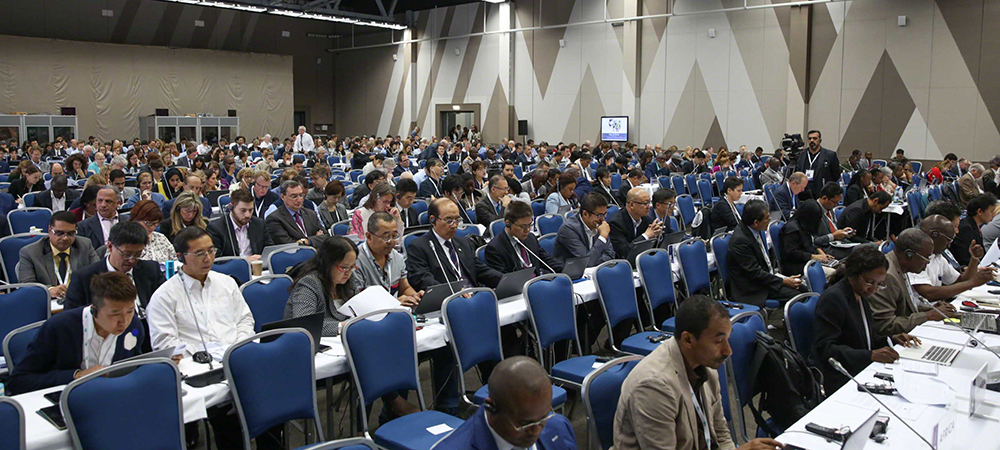
Delegates during the morning session
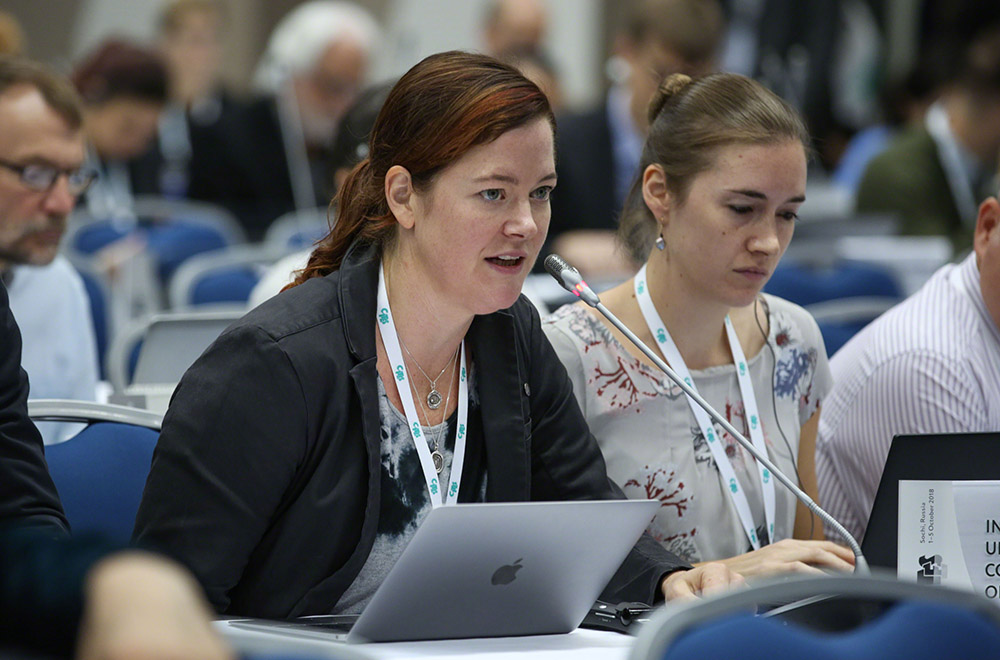
Sarah Foster, International Union for Conservation of Nature (IUCN)
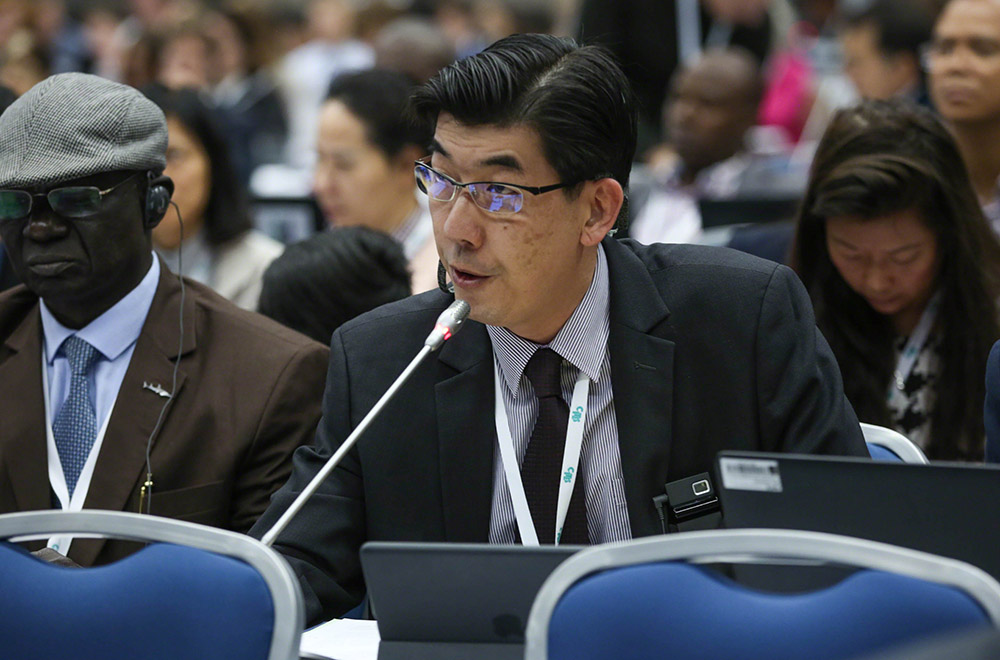
Yap Him Hoo, Singapore

Tae-Kwon Noh, Republic of Korea
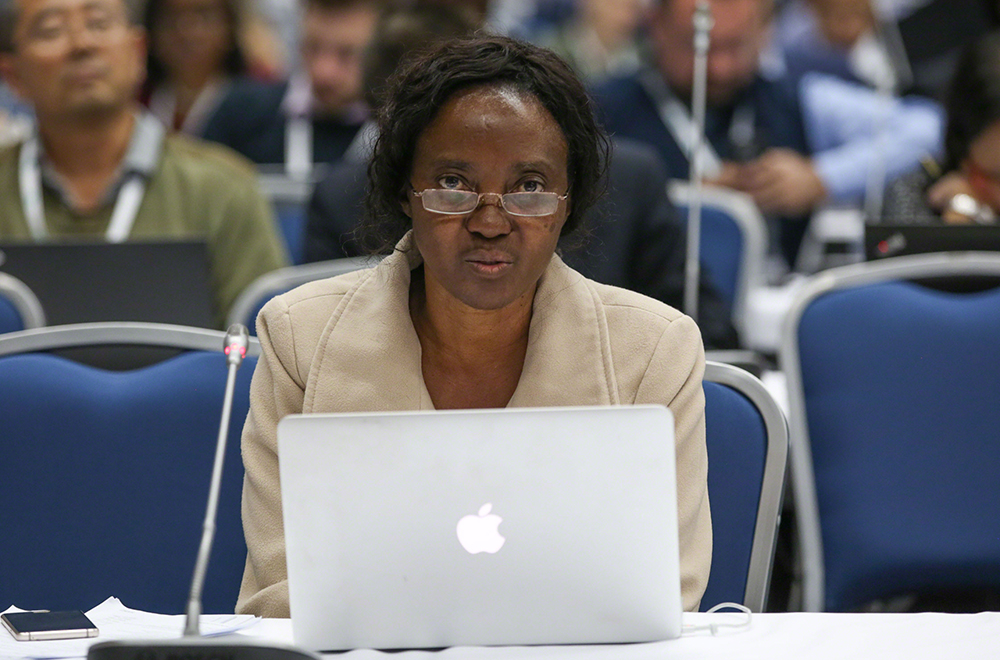
Elly Hamunyela, Namibia
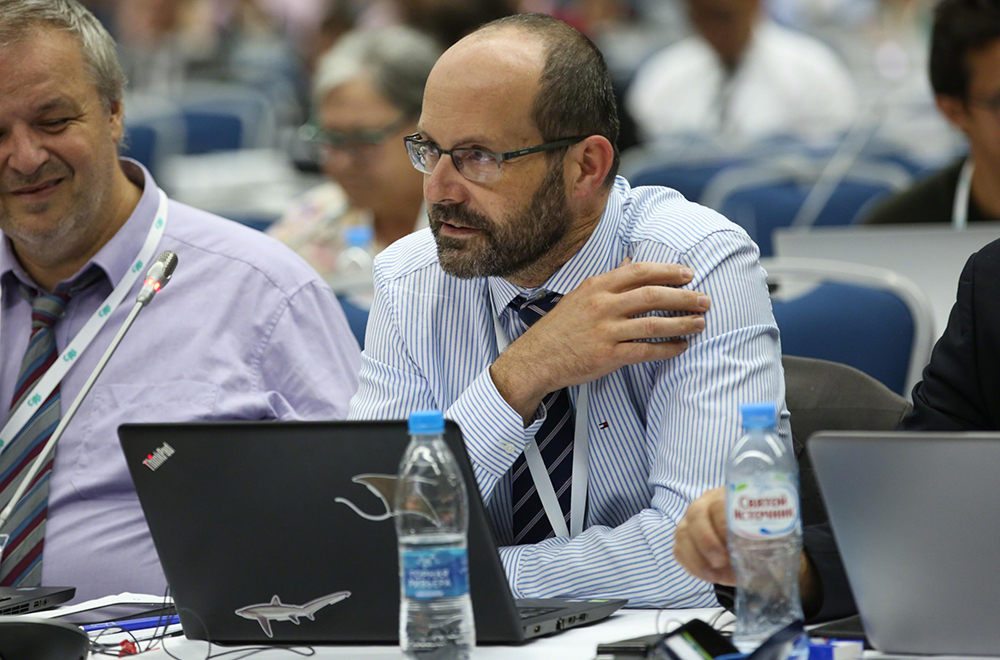
Levente Kőrösi, Hungary

A visitor uses a virtual reality headset to experience some of the environmental diversity of Russia
The 70th meeting of the Standing Committee (SC) of the Convention on International Trade in Endangered Species of Wild Fauna and Flora (CITES) continued addressing its lengthy agenda. Much of the morning was devoted to discussion on introduction from the sea (IFS) of sei whale (Balaenoptera borealis) by Japan and whether it has been adversely affected by commercial trade as described within Article 13 of the Convention. The SC sought positions by parties on remedial actions to be taken on technical matters on issuance of IFS certificates by Japan and whether the SC is satisfied or not on whether the sei whale is being used for ‘primarily commercial purposes.’ The SC concluded that current IFS certificates for sei whale meat and blubber are being used partly for commercial purposes and are not in conformity with the Convention, and requested Japan take remedial legal actions, stop the departure of research vessels as well as the cessation of IFS certificates until SC71.
SC70 then considered the illegal trafficking of ebony and rosewood from Madagascar and concerns that disposal of stockpiles could stimulate further illegal trade.
During the lunch break, the Russian Federation hosted a side event on steps taken to conserve tigers, Amur and Persian leopards, and snow leopards.
During the remainder of the day, the SC considered:
- trade in specimens bred in captivity or artificially propagated; and
- the application of Article XIII to the Democratic Republic of Congo and the implementation of SC recommendations regarding quota management and issuance of export permits; management of trade of African grey parrots (Psittacus erithacus) and illegal trade; and trade in Afrormosia (Pericopsis elata).
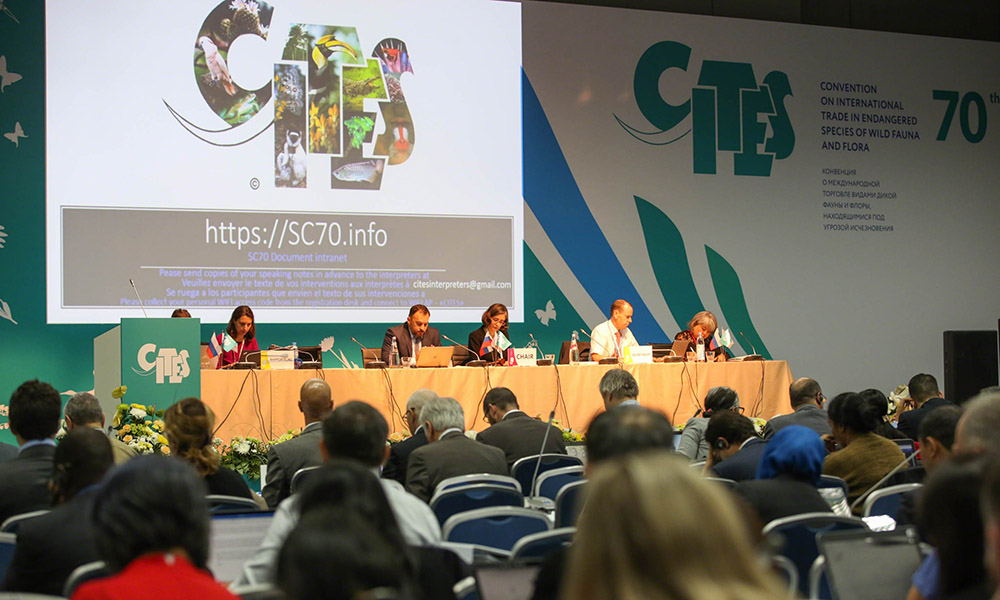
View of the dais during the morning plenary
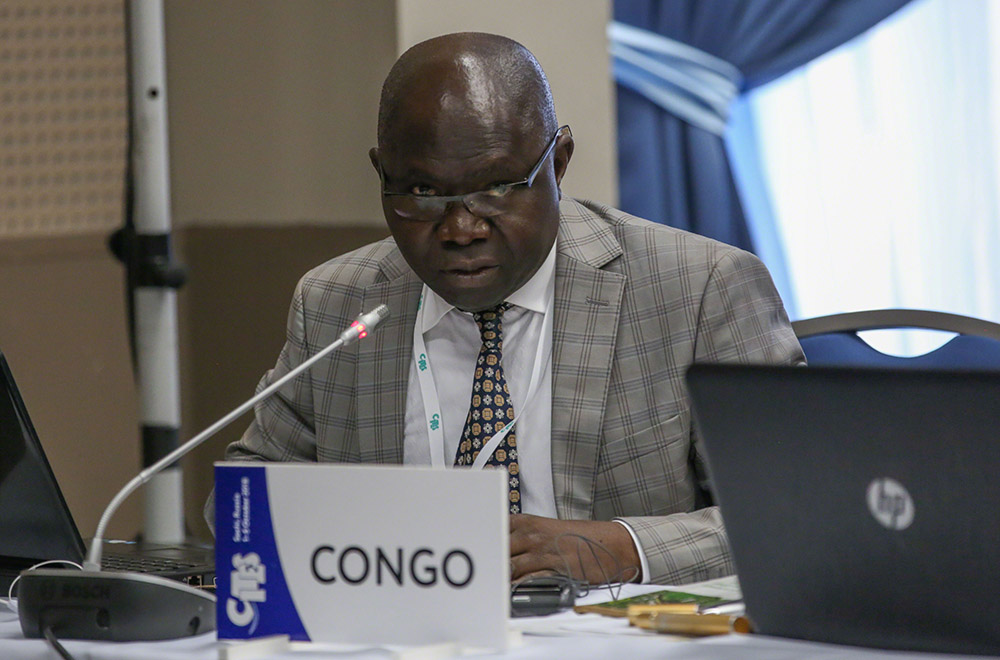
Joseph Moumbouilou, Congo
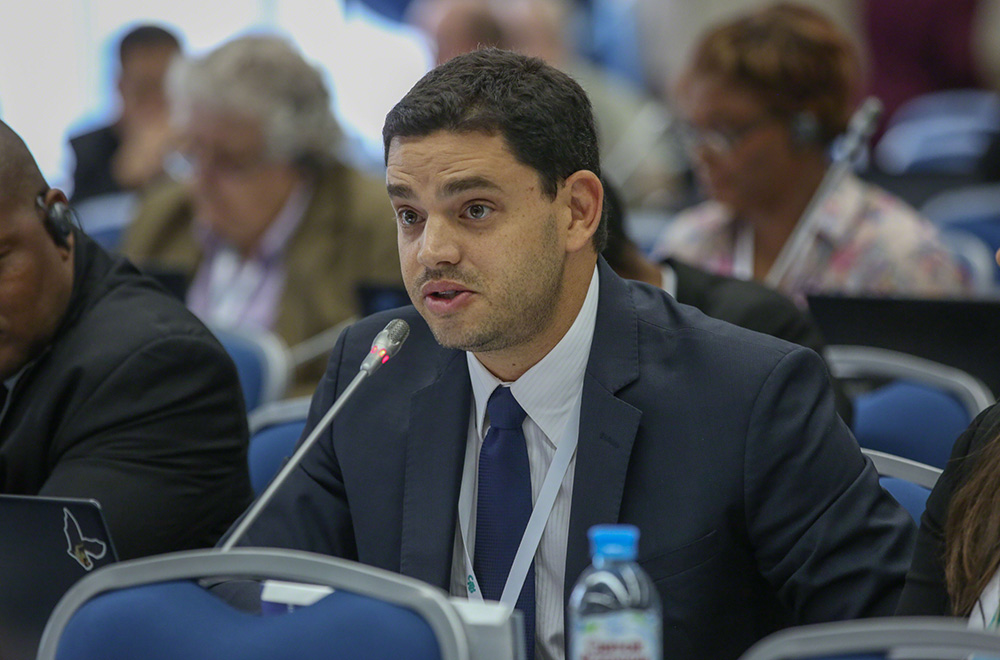
Ugo Eichler Vercillo, Brazil
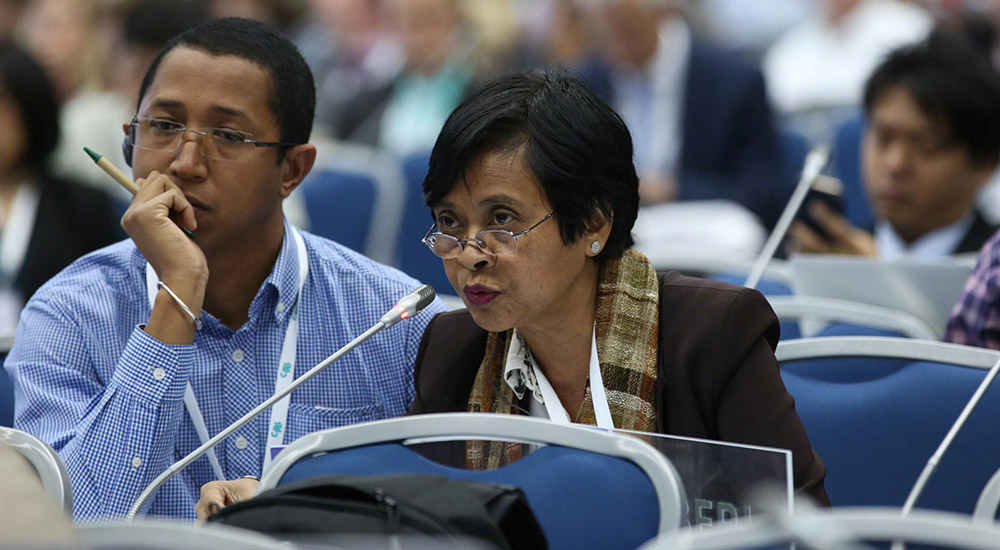
Noro Vololona Harimisa, Minister of Justice, Madagascar

Ji Wei, China Wildlife Authority
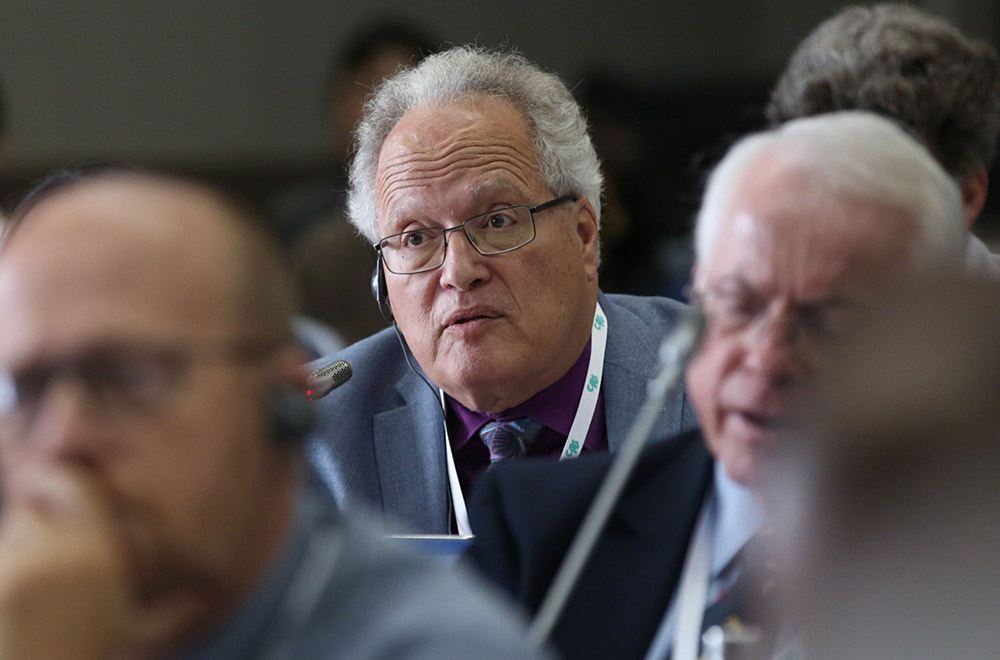
Ronald Orenstein, Humane Society International (HSI)
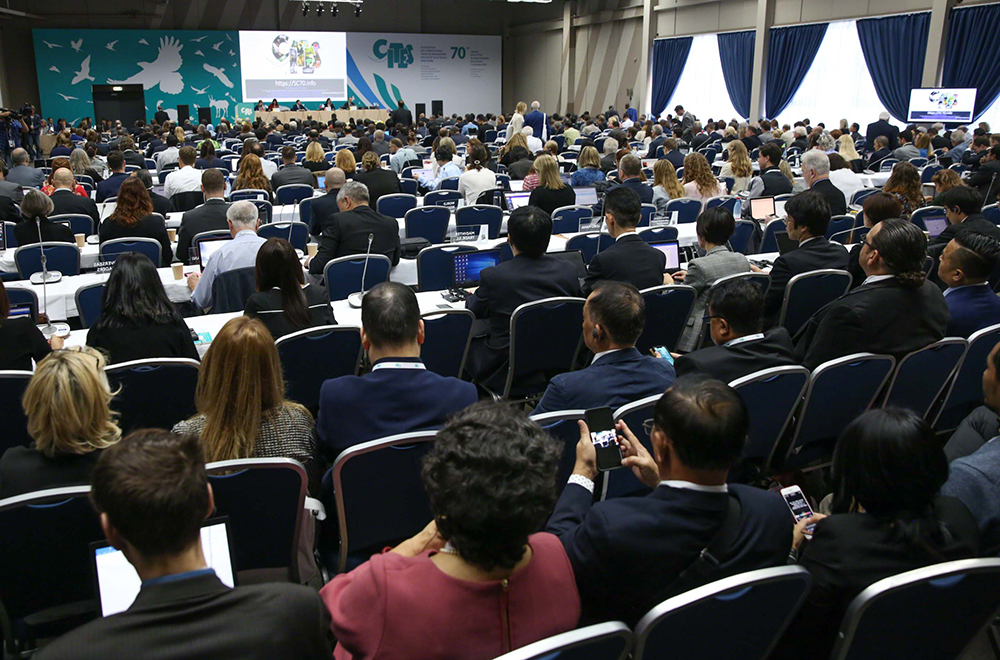
Delegates gather for the start of CITES SC70
On Monday, Dmitry Kobylkin, Minister of Natural Resources and the Environment, Russian Federation, welcomed participants to the 70th meeting of the Standing Committee (SC) of Convention on International Trade in Endangered Species of Wild Fauna and Flora (CITES) in Sochi, noting, inter alia, the Russian Federation’s efforts in expanding protection of special habitats for polar bears, tigers and other species.
SC Chair Carolina Caceres noted the packed agenda, emphasizing optimism in considering the many detailed and technical documents in a timely manner. She highlighted the opportunity she had to review candidates for the CITES Secretary-General position and noted that the decision will be made by the UN Secretary-General.
She also noted that for the first time the SC would have two evening sessions.
The SC also discussed:
- financial matters, recognizing that the core trust fund is on track to deliver within approved budgets, but noted the delay of parties in paying annual contributions, emphasizing that this will have a negative impact on the Secretariat’s ability to fund daily operations;
- Lao PDR’s progress in the compliance with the Convention and a recommendation to “keep the momentum” by suspending commercial trade in specimens of the genus Dalbergia spp. until Lao PDR makes scientifically based non-detriment findings for trade in the relevant species; and
- the National Ivory Action Plans (NIAPs) process.
Several working groups were struck, including on Rules of Procedure for the CoP, NIAPs, and Purpose Codes.
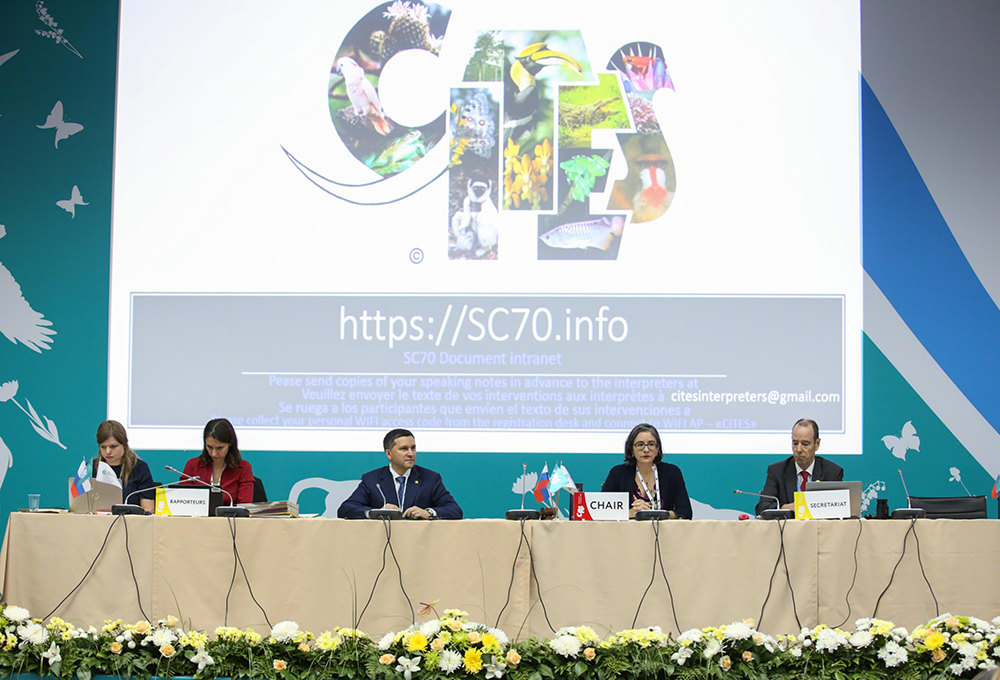
View of the dais during the opening session
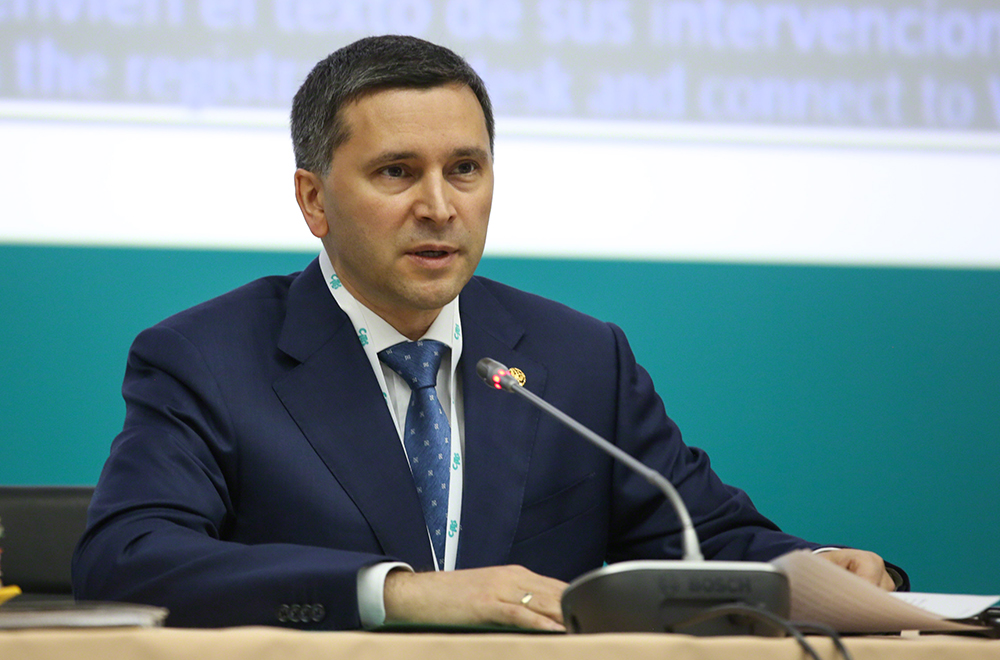
Dmitry Kobylkin, Minister of Natural Resources and the Environment, Russian Federation
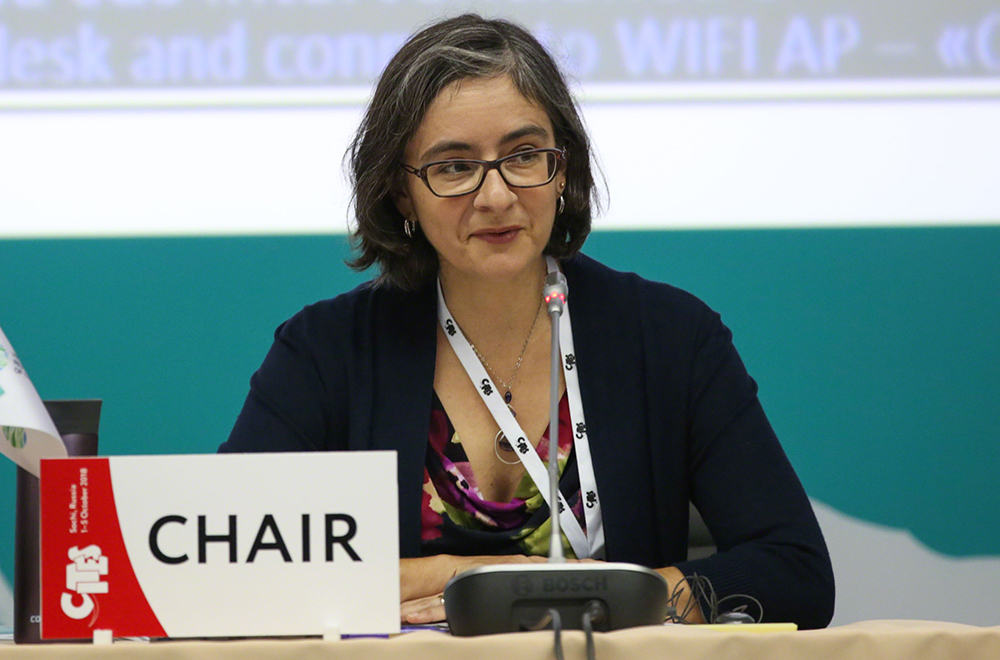
Carolina Caceres, Standing Committee (SC) Chair, Canada
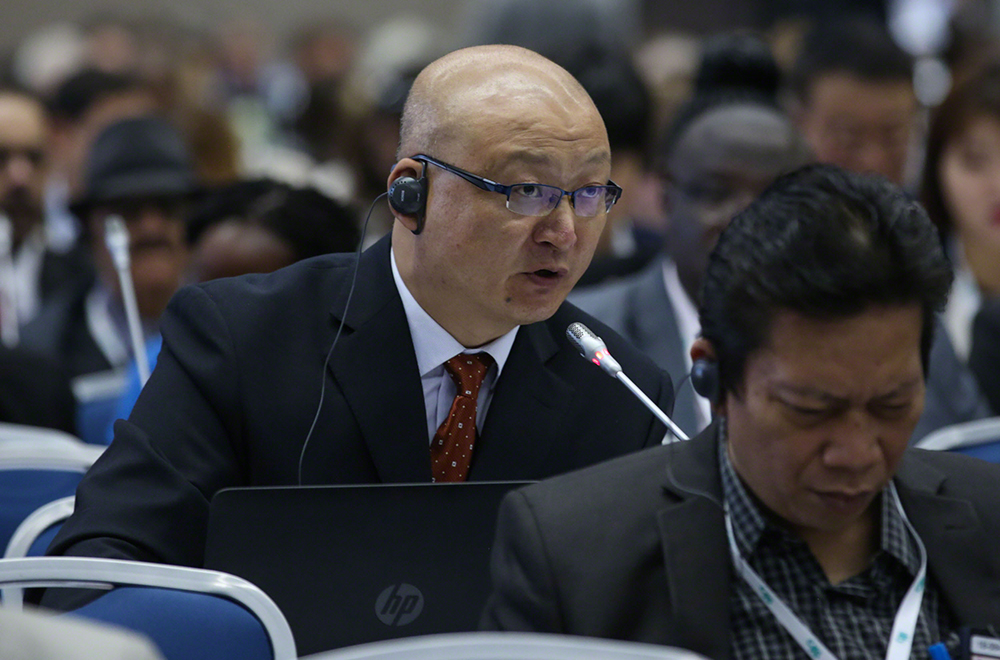
Zhongze Wu, China
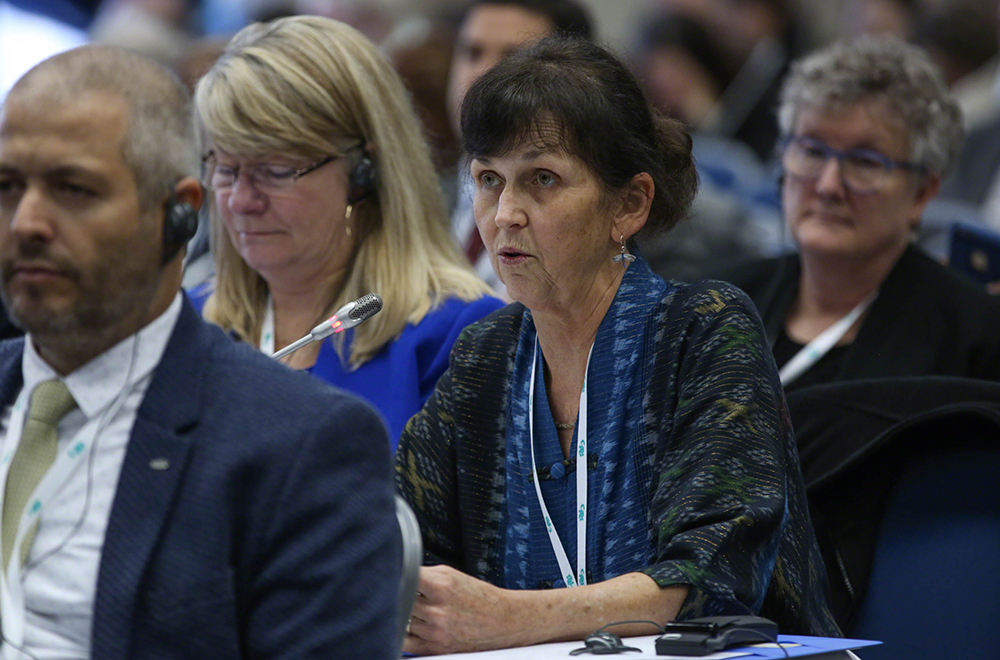
Christine Dawson, US
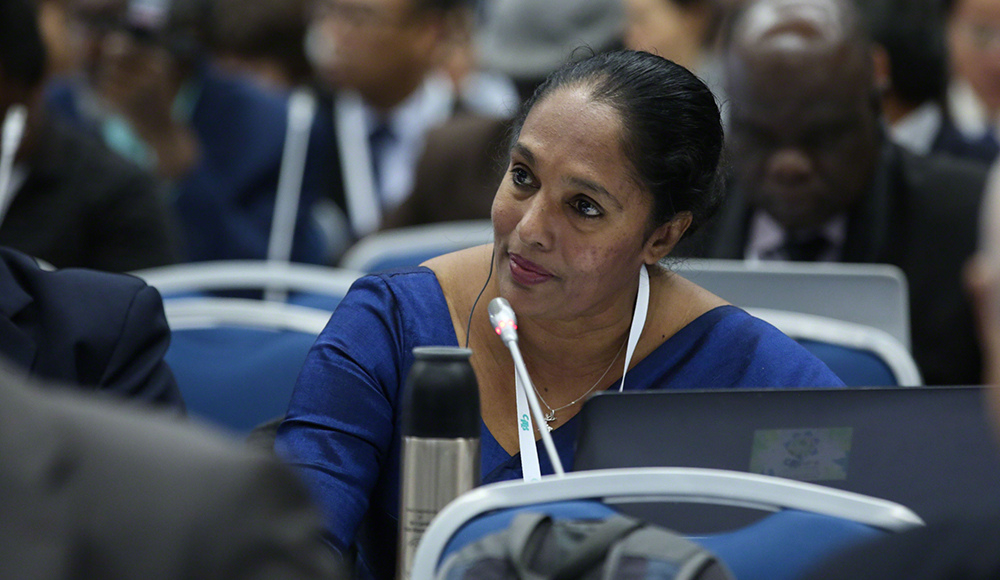
Sevvandi Jayakody, Sri Lanka





